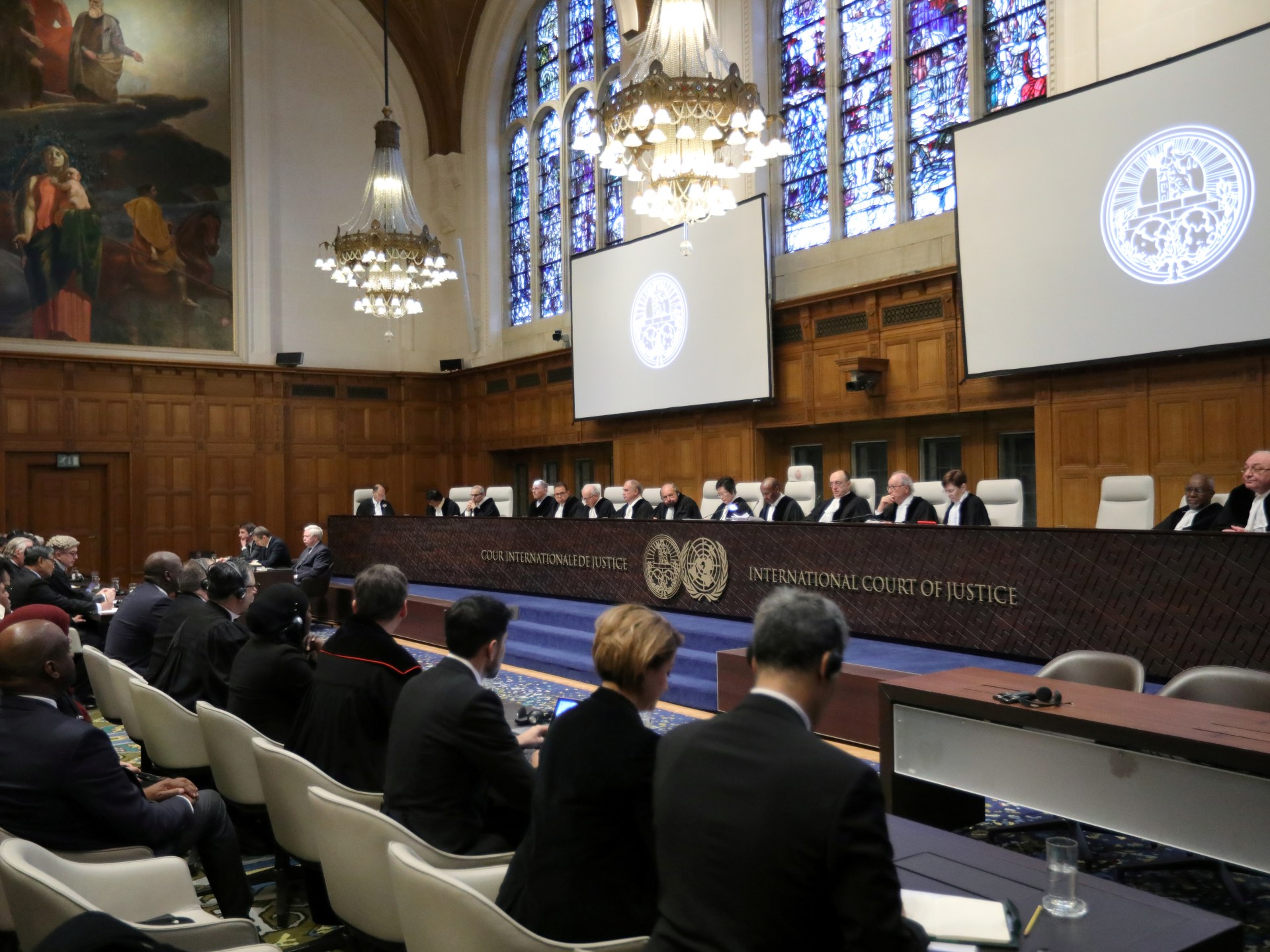The International Court of Justice confirmed that it had received an official request from the United Nations General Assembly regarding expressing an opinion and the legal consequences of Israel's occupation of Palestinian lands.
In a statement, the Court clarified the issues on which the United Nations requested an opinion;
Which are the legal consequences arising from the continuous violation by Israel of the rights of the Palestinian people, and how will Israel's policies and practices affect the legal aspect of the occupation?
What are the legal consequences of this situation for all countries and the United Nations?
The court is expected to prepare a list of countries and organizations that will be allowed to submit written statements, and the statement did not provide additional information on the time frame for that process.
In previous advisory opinions, the court has also scheduled hearings, but it will likely take at least several months before dates are set.
Last month, the United Nations asked the Court of Justice to provide an advisory opinion on the legal consequences of the Israeli occupation, settlement and annexation of lands, including actions aimed at changing the demographic composition, nature and status of the city of Jerusalem, and the adoption of discriminatory legislation and procedures to perpetuate this policy.
The UN resolution also asks the court to express its opinion on how these policies and practices affect the "legal status of occupation" and what legal consequences might arise for all states and the United Nations from this situation.
Israeli sanctions
Israel condemned the UN move, and Prime Minister Benjamin Netanyahu described the request for the opinion of the International Court of Justice as an "abhorrent decision."
As a result of the decision, the Israeli government announced on the sixth of this month the adoption of 5 sanctions against the Palestinian Authority, which included deducting funds from Palestinian financial dues, and freezing Palestinian construction plans in Area C.
The sanctions also included depriving Palestinian figures of movement permits, in addition to taking measures against organizations in the West Bank that promote what it described as "hostile activity" against Israel.
binding provisions
It is worth noting that the International Court of Justice, based in The Hague in the Netherlands, is the highest court of the United Nations that deals with disputes between states, and its rulings are binding, although it does not have the power to enforce them.
The last time the International Court of Justice expressed an opinion on the conflict between Israel and the Palestinians was in 2004, when it ruled that the Israeli separation wall was illegal.
In the same ruling, the court said that Israeli settlements in occupied Palestinian territory were "established in violation of international law." Israel rejected that ruling, accusing the court of being politically motivated.

